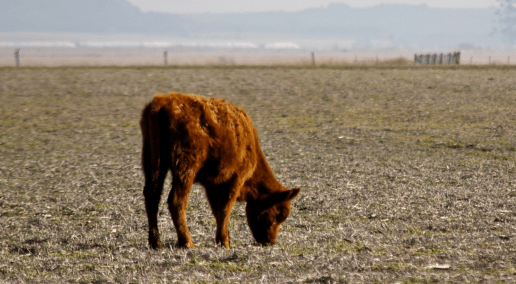During the session, Improving Containerized Supply Chains for Canadian Shippers – Disruptions in Container Supply Chain, Greg Northey from Pulse Canada presented information on disruptions to containerized maritime transport, the resulting decline in service levels, delays and higher costs and market conditions and structure that have caused these disruptions.
Containers are used for export. For example, pulses (lentils/peas) are only moved by containers. When taking completely containerized, or even partially containerized products, into account, supply chain issues deeply impact exports.
At the beginning of covid lockdowns, there was an immediate imbalance in world trade in container supply. Greg said they started to see blank sailings, route reductions and rising rates. They saw rapid consumer spending increase near the ending of the lock downs. This led to the buying power going up. Shipping lines tried to get empty containers to China as fast as possible. This was a big issue for exporters because of the lack of empty containers and other countries’ demand.
Shipping containers were then demanded to go only to China. At the same time, there was a closure of routes through Latin America and the Indian subcontinent when they faced a rapid rise in covid case rates.
In early 2022, high rates of covid and a systematic de-prioritization of exports led to lack of service, very few routes, waiting on docks and an extreme disruption of the market. In late 2022, consumer spending and rates dropped and a trend of decline, that is still present now, proceeded. As a result, a higher cost of 56 per cent operating margin occurred in 2021, versus the 3.7 per cent operating margin a year earlier. Also, shipping companies are making record profits.
Are we starting to normalise?
Greg said at the time of the presentation in late 2022, they were starting to see a plateau towards the pre-pandemic figures. They believed that driving capacity management from shipping companies was kicking in. Blank sailings were increasing, though route restrictions remained. Shipping lines created a series of capacity-management techniques, but still prioritised Chinese markets.
Will we see this management continue? How can shipping lines manage capacity?
Three alliances control up to 98 per cent of the market. This is a large amount of control and a highly concentrated oligarchy.
A consolidation of six companies, with alliances, form consortia. These companies are very linked together and collectively have ways to manage their capacity. Greg hoped they reflect market demand and will meet supply, but when seeing the tremendous benefits they got during the pandemic, it is unclear whether they will manage this fairly or for their profits. Gary said they currently don’t know if things will return to a normally functioning market.
What do we do about this oligarchy?
Greg offered three suggestions:
- Industry strategy: develop a container crunch consortium through collaborations of many affected sectors experiencing competitive disadvantages to get government attention and action.
- Perform a Canadian container liner shipping trade analysis and a global overview. Many jurisdictions have different laws to manage these companies/alliances, so we should collect data.
- Competition Law Assessment.
Current focus is on participating in the Five Eyes. There is a need to bring focus to the suspected anti-competition behaviour, starting with getting international framework for competition of international shipping.
There is also a focus on creating a formal request to get the federal Competition Bureau to investigate capacity management and to manage containers in the economy. There is a need to bring more accountability and fair performance to the table. Greg said we need these services but don’t want to overregulate. The U.S. recently passed a law requiring more data, capacity and oversight/accountability for their service.
Key recommendations
Greg offered the following recommendations: Repeal the Shipping Conferences Exemption Act and amend the Canada Transportation Act to address pro-competition, develop data collection and monitor systems for future policy use.
Conference 2023
The CFGA is excited to announce that its 14th annual conference will take place Nov. 28 to Dec. 1 in person in Harrison Hot Springs, BC. This year’s conference theme is Forage Resilience in a Changing Landscape: Manage risk. Overcome challenges. Discover opportunities and we look forward to delivering the interesting and informative sessions the CFGA conference is known for. Please save the date to join us as we learn about issues facing the forage sector and how they overcome these challenges, as well as take a look ahead to opportunities. Watch the CFGA conference website for more information.
Back to Most Popular



Leave a Comment